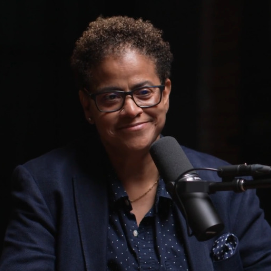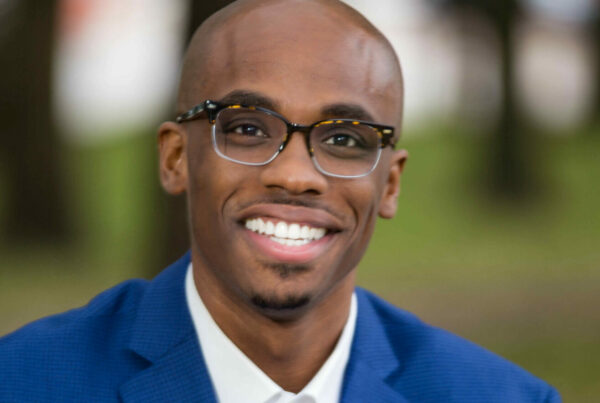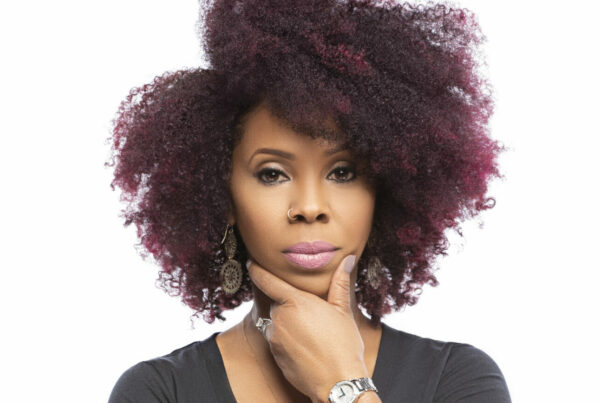In today’s episode of The Deep Cut Melissa Bradley is sharing why we as New Majority entrepreneurs must prioritize our health on the journey from founder to CEO.
Learn More About Henrietta Lacks:
The Henrietta Lacks Foundation
Transcript:
It’s time for The Deep Cut from Founder Hustle, the podcast series by for and about the new majority entrepreneur. I am your host Melissa Bradley, founder of 1863 Ventures. As a seasoned venture capitalist, I provide practical advice and tools to entrepreneurs and their ecosystems on how to grow and scale their businesses. But I also realize that you cannot be successful without knowing what has come before, as well as preparing for what is yet to come. And that’s where The Deep Cut comes in. Considering that over 50% of small businesses fail within five years, these bonus episodes are where we level up on the history that brought us to this moment and the current events that can impact the stability and growth of your business and shape your future. The Deep Cut is a power-up from Founder Hustle to help you on your journey from founder to CEO.
In episode 103, of Founder Hustle with Kalilah Wright, CEO of Mess in a Bottle, she shared her personal story about a robbery to her business. She discusses how it disrupted her business, put her life in danger and became a traumatic event that she continues to work through with the help of self-care and therapy. On today’s Deep Cut, I want to dive a bit more into the current and historical data about the health and well-being of the New Majority entrepreneur.
Health, mental and physical is an important topic to me. From the venture capital side of the business, the health of the founder is what keeps the business going. It is also sometimes something we take for granted because we know the company in its early days is nothing without the founder and its vision. Venture capital has backed the founder, and obviously we need the founder to be healthy in both body spirit and mind. I bring up the topic of health because we read about the negative health status amongst members of the new majority community writ large, and we cannot be naive that our founders are no less challenged by stress, negative health outcomes and the pressure of building a business. The founder lifestyle is not one of glitz and glamour, despite what you see on social media. In fact, it is a day in and day-out, non-stop work day. Between the stress of that lifestyle to the stresses of the world in general. It can and will take a toll on the body, and I personally know the toll that building a business can take on a founder.
Allow me to share a personal story. In April 2020, during the height of the pandemic, I suffered a stroke. I was hospitalized with no access to my family. It was by far definitely one of the scariest times in my life. I was unable to advocate for myself despite having great insurance. And I was definitely fearful that I would actually die to the spread of COVID. If it was not for my wife who attended medical school, I’m actually unsure of what my fate would have been. My stroke was caused by stress, an atrial fibrillation. This was addressed through heart surgery in July of that same year. And to this day, I have a loop recorder implanted next to my heart that is monitored by my doctor on a daily basis.
Please know that on your journey from the founder to CEO, it is not just about the financial health of your business, but also your mental and physical well-being. The journey is not for the faint of heart, which is why you should get your heart, mind and body checked out literally and regularly. You must find time in your schedule to make a meeting with yourself to rest your mind and your body, because if you are not healthy as a founder, your business will not be either.
It is the mission of the company I founded, 1863 Ventures, to support new majority founders in growth and scale of their business. But it’s also my personal mission to support Black founders in general. Why? Because I continue to uncover the history and data, that tell a story about our health and well-being. And the numbers around black founders, particularly black female founders, paint a very specific picture.
There’s a well-known fact that the fastest growing segment of entrepreneurs in United States is black women. Black women currently make up approximately 7% of the US population, and just over 13% of all US women. But the distressing fact is that on average, black women are younger 36.1 years compared to women overall at 39.6 years, and they have a higher prevalence of many health conditions. These conditions include heart disease, stroke, cancer, diabetes, maternal morbidities, obesity and stress. I’m not sure what else is left? We must remember that these health outcomes do not occur independent within the social conditions where we exist. The higher burden of chronic conditions such as anemia, cardiovascular disease, and obesity reflect the structure inequity within and outside the health system that the black woman experiences throughout her entire life.
The intersectionality of gender and race and its impact on the health of a black woman is an important conversation to have. The intersection of race and gender is more than the sum of being black or being a woman, it is the synergy of the two. Black women are subject to high levels of racism, sexism and discrimination at levels never experienced by Black men, and certainly not by White women, or White men. But these social conditions create the environment for health disparities to not only exist, but persist. These are the social determinants of health. The conditions in the environment in which people are born, live, learn, work, play, worship and age that affect a wide range of health functioning and quality of life, outcomes and risks. Disparities in Black Women’s Health are particular types of health differences that are, “Closely linked with social, economic and/or environmental disadvantage.”
Health inequity is rooted in slavery. Black women were forced to procreate with little or no self-agency and limited access to medical care. The development of gynecology as a medical specialty in the 1850s, ushered in a particularly dark period for the health of Black women. With no regulations for the protection of human subjects in research, Black women were subject to unethical experimentation without consent.
Have you heard of Henrietta Lacks? Henrietta was diagnosed with cervical cancer in the 1950s. Her cancer cells were removed from her without knowledge and used for experimentation. They were later known as HeLa, and it would change the course of cancer treatment.
Her cells allowed for doctors to understand how to fight what was happening in the world of cervical cancer and beyond. The irony is, is that what happened to her was something that was unknown to her and her family for a long time. And it was their fight to understand exactly what happened to her and to reclaim her name in history after so many years helping other patients that were Black, that were White, that were male and that were female.
I cite these historical facts as the basis to understand the generational skepticism and fear of the United States of medical establishment amongst Black folks. This fear is literally killing us, though. Black women are dying at faster rates related to heart disease, maternal health and other chronic illnesses which take a toll physically, emotionally and financially. As a specific example, Black women in the United States experience unacceptable poor maternal health outcomes, including disproportionately higher rates of death related to pregnancy and child birth.
Allow me to introduce you to Arion Long founder and CEO of Femly. After being diagnosed with a reproductive illness related to chemicals in popular feminine care products, Arion launched her company because she believed that women, “Deserved products they could believe in.” Since millions of women suffer from reproductive issues such as fibroids, endometriosis, polycystic ovarian syndrome, or PCOS, or have tough periods, it was important for Arion, to serve as an agent of change. This led her to create a feminine care subscription box called Femly that has since grown to a unique solution based reproductive product for women across the globe.
Now, this business is based on her personal story. In May of 2018, two years following her diagnosis, Arion lost her daughter, Sage, in a still birth delivery. She was diagnosed with E. Coli Septicemia, organ failure and disseminated intravascular coagulation, also known as DIC, which resulted in her being placed on life support. The days following, Arion took on the fight of her life. After experiencing a great level of blood loss and undergoing several blood transfusions, thank God she came out alive and healthy.
This brings me back to Kalilah. I am so proud of her willingness and ability to leverage her own personal vulnerability and move forward with her life and business with the help of her family and customers, she began to seek therapy. Much like Arion, she knew that it was important to leverage her personal experiences and build and grow her business to help so many other Black women – and women writ large.
Kalilah created a T-shirt that literally says, OMW to therapy, BRB. This is better known as on my way to therapy, be right back. This shirt is her attempt to normalize, seeking professional health as needed. And she openly speaks about her therapist and the importance of that relationship in her life.
With respect to mental health, we are seeing an increase in the number of patients with worsening or new onset of symptoms. And most of these people are people of color. Now, more than ever, it is important to normalize the discussion surrounding mental health within new majority communities. We must remember that mental illness, there is no group, gender, sexual identity, race or cultural belief that can prevent it from occurring. However, unfortunately, it’s actually happening at higher rates than most other illnesses, including heart disease and diabetes in communities of color – especially at alarming rates for women of color. Women in general, are at least twice as likely to experience an episode of major depression as men, and of course, African-American women are only half as likely to seek help.
It is important that we normalize these discussions with the hope that we will continue to provide freedom to share and vulnerability to begin to seek the help that we need. More people, including high profile celebrities, actors, singers, political representatives, all from new majority communities are finally opening up about their battles with depression.
It is important to remember that while we pursue our dreams of entrepreneurship and oftentimes sacrifice time, savings, family and our well-being, that we are doing this not just because we desire to be wealthy, it is because we desire health for ourselves and our communities.
Here’s wishing you health, wealth and happiness to all my new majority entrepreneurs. Remember, taking care of yourself is just as important, if not more important, than taking care of business.
Thank you for listening.
Thank you for listening. Don’t forget to subscribe to the Founder Hustle Podcast where you can hear thought provoking interviews along with our Deep Cuts.
Check us out at founderhustle.io.
You can find us on Twitter at Founder Hustle.
On Instagram we’re underscore founderhustle.
And if you’re a Facebook person we’re also there as Founder Hustle.
Founder Hustle and the Deep Cut are produced by Kinetic Energy Entertainment.
Edited and mixed by Anne Kane.
Social media producer is Misako Envela.
Music is Ratata by Curtis Cole.
And remember, knowledge is crucial, because knowledge is power.
Referenced in Today’s Episode:
Credits:
- Founder Hustle and the Deep Cut are produced by Kinetic Energy Entertainment
- Edited and mixed by Ann Kane.
- Social media producer is Misako Envela
- Music is Ratata by Curtis Cole



